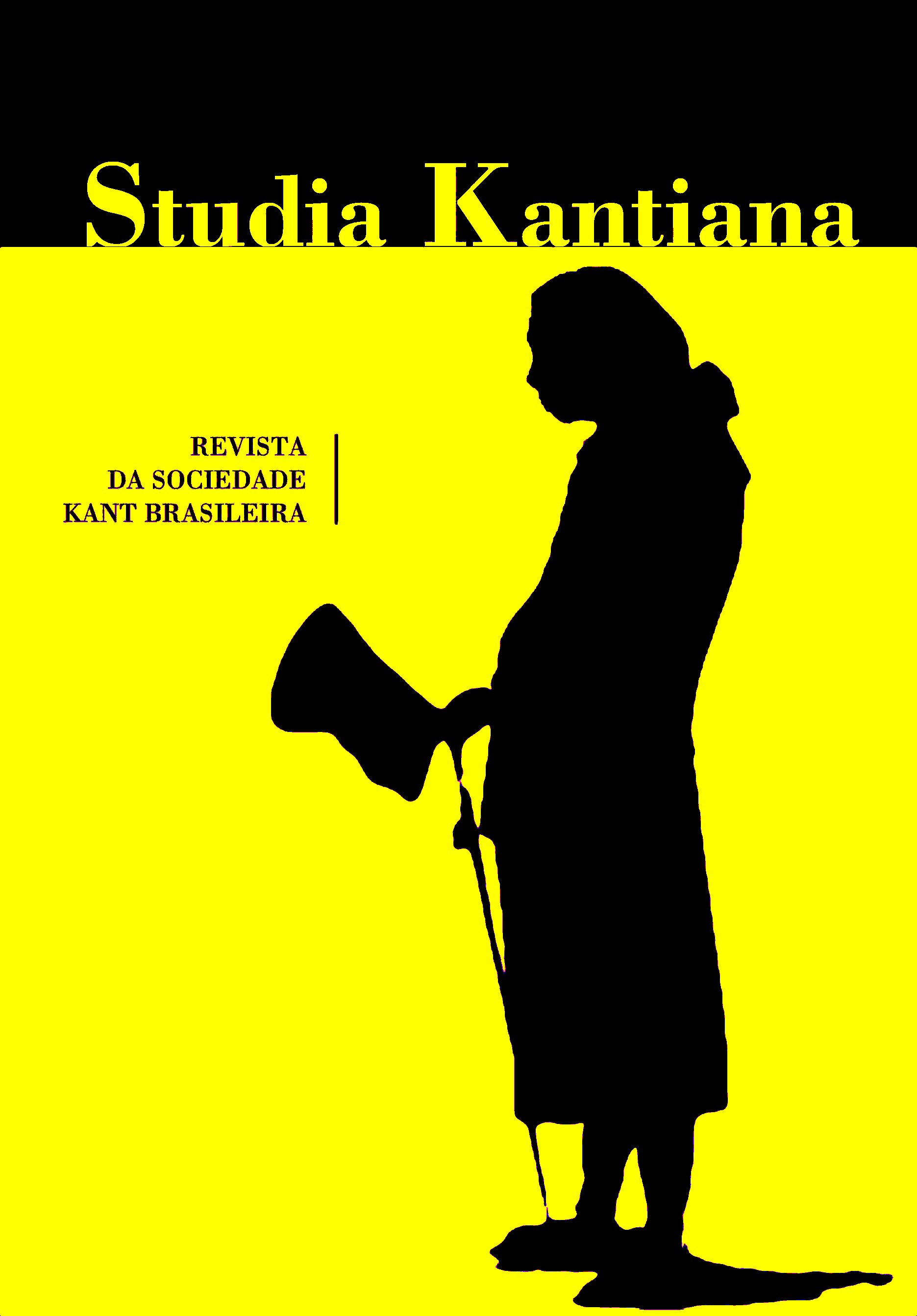"Uma vontade livre e uma vontade submetida a leis morais são uma e a mesma coisa": o conceito kantiano de autonomia e sua tese da analiticidade na Fundamentação III
DOI:
https://doi.org/10.5380/sk.v18i1.89994Resumo
"Uma vontade livre e uma vontade submetida a leis morais são uma e a mesma coisa": o conceito kantiano de autonomia e sua tese da analiticidade na FundamentaçãoIII.
Tradução: Rômulo Eisinger
Revisão: Robinson dos Santos
Referências
ABBAGNANO, N. Dicionário de Filosofia. São Paulo: Martins Fontes, 1999.
ALLISON, H. Kant’s Groundwork for the Metaphysics of Morals. Oxford: Oxford University Press, 2011.
DAMSCHEN, G; SCHÖNECKER, D. Selbst philosophieren. Ein Methodenbuch. Berlin: De Gruyter, 2012.
GUYER, P. “Moral Feelings in the Metaphysics of Morals” In: DENIS, L. (ed.). Kant’s Metaphysics of Morals: A Critical Guide. Cambridge: Cambridge University Press, 2010, p. 130–51.
KORSGAARD, C. “Kant’s Analysis of Obligation: The Argument of Foundations I” In: The Monist, vol. 72, 1989, p. 311-340.
O’NEILL, O. Constructions of Reason. Cambridge: Cambridge University Press, 1989.
PIEPER, A. “Wie ist ein kategorischer Imperativ möglich?” In: HÖFFE, O. (ed.) Grundlegung zur Metaphysik der Sitten: ein kooperativer Kommentar. Frankfurt am Main: Vittorio Klostermann, 1989, p. 264-281.
RAUSCHER, F. “Freedom and Reason in Groundwork III” In: TIMMERMANN, J. (ed.). Kant’s Groundwork of the Metaphysics of Morals: A Critical Guide. Cambridge: Cambridge University Press, 2009, p. 203-223.
ROSS, D. Kant’s Ethical Theory. Oxford: Clarendon Press, 1954.
SCHÖNECKER, D. Kant: Grundlegung III. Die Deduktion des kategorischen Imperativs. Freiburg und Munich: Alber, 1999.
SCHÖNECKER, D. “Textvergessenheit in der Philosophiehistorie”. In: SCHÖNECKER, D; ZWENGER, T. (eds.) Kant verstehen/Understanding Kant. Über die Interpretation philosophischer Texte. Darmstadt: Wissenschaftliche Buchgesellschaft, 2004, p. 159-181.
SCHÖNECKER, D. Kants Begriff transzendentaler und praktischer Freiheit. Eine Entwicklungsgeschichtliche Studie. Berlin: De Gruyter, 2005.
SCHÖNECKER, D. “How is a Categorical Imperative Possible? Kant’s Deduction of the Moral Law in Groundwork III”. In: HORN, C; SCHÖNECKER, D. (eds.) Kant’s Groundwork for the Metaphysics of Morals. Berlin: De Gruyter, 2006, p. 302-324.
SCHÖNECKER, D. “Die Methode der Grundlegung und der Übergang von der gemeinen sittlichen zur philosophischen Vernunfterkenntnis” In: OBERER, H. (ed.) Kant: Analysen – Probleme – Kritik. Vol 3. Würzburg: Königshausen & Neumann, 2007, p. 81-98.
SCHÖNECKER, D. “Kants Moralphilosophie und ihre kommentarische Interpretation”. In: ethic@, Florianópolis, v. 8, n. 1, Jun. 2009.
SCHÖNECKER, D.; WOOD, A. Immanuel Kant: Grundlegung zue Metaphysik der Sitten. Ein einführender. 4ª edição. Paderborn: Schöningh, 2011.
STATTLER, B. Anhang zum Anti-Kant in einer Widerlegung der kantischen Grundlegung zur Metaphysik der Sitten. Munich: Lentner, 1968. (1788).
WAGNER, H. “Kants Konzept von hypothetischen Imperativ”. In: Kant-Studien, vol. 85, 1994, p. 78-84.
WOOD, A. Kant’s Ethical Thought. Cambridge: Cambridge University Press, 1999.
Downloads
Publicado
Como Citar
Edição
Seção
Licença
Copyright (c) 2023 Dieter Schönecker

Este trabalho está licenciado sob uma licença Creative Commons Attribution 4.0 International License.
Os autores retêm os direitos autorais (copyright) de suas obras e concedem à revista Studia Kantiana o direito de primeira publicação.
Autores cedem o direito aos editores de vincular seus artigos em futuras bases de dados.
Todo o conteúdo desta revista está licenciado sob a Licença Internacional Creative Commons 4.0 (CC BY 4.0)




